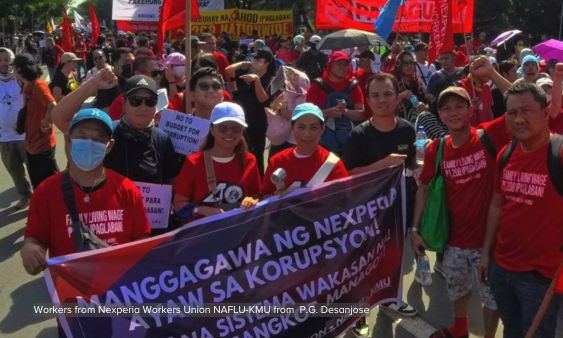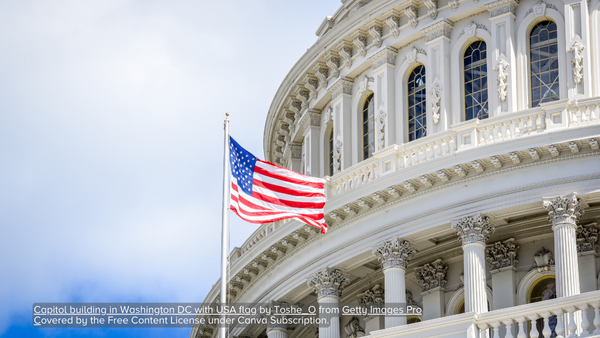Ten years ago the first iPhone went on sale. The iconic product not only profoundly altered the world of gadgets, but also of consumption and tall corporate profit; this world would be impossible without the toiling of millions along the assembly line.
I look back at the first ten years of the iPhone and see a bloody decade of labour abuse, especially in Chinese factories such as those run by Foxconn, the world’s largest electronics manufacturer. At one point Foxconn had more employees in China than the US armed forces combined.
Foxconn makes most of its money from assembling iPhones, iPads, iMacs and iPods. Its notorious “military management” was blamed for causing a string of 17 worker suicides in 2010.
The company tried so hard to stop the suicides, not by digging out the roots of exploitation, but by erecting “anti-jumping nets” atop its buildings. Never before has a modern factory hidden behind such suicide-prevention netting, which last appeared on transatlantic slave ships centuries ago.
Foxconn is only one part of the Apple empire. The long and complicated supply chain has caused innumerable work injuries, occupational diseases and premature deaths over the past decade.
To date, Apple does not offer a full account for the total damage of victimised lives. The number must be many, many thousands if we include all Apple suppliers. And yet factories like Foxconn often enjoy immunity, sometimes taking no responsibility at all.
To make a living, workers must break the law
Apple continues to put out bogus claims:
Products made to have a positive impact. On the world and the people who make them.
The company claims to hold its suppliers accountable “to the highest standards”.
In reality, corporate practices in the making of the iPhone are substandard when held up against either Chinese labour regulations or ethical smartphone companies such as Fairphone. Apple’s standards for their workers are anything but “the highest”.
Wages remain low. Students and Scholars Against Corporate Misbehaviour calculate that the living wage for an iPhone worker in Shenzhen, China, should be about $650 per month. But to earn this amount today, an average worker would need to pull off 80-90 hours of overtime every month – that’s more than double the legal cap of 36 hours.
In other words, to make a living, workers have no choice but to break Chinese law.
Back in 2012, Apple vowed to work with Foxconn to bring the amount of overtime down to no more than 49 hours a week. It later broke its promise and retreated to adopt the Electronic Industry Code of Conduct (EICC), which stipulates “no more than 60 hours a week”.
The EICC standard is 25% lower than the Chinese legal threshold. So why did Apple opt for a less-than-legal code of conduct in the Chinese context over a higher standard? Tim Cook owes us an explanation.
Even with the EICC, workers refusing to do excessive overtime at the current wage level simply won’t be able to make ends meet. The only way for workers to earn a livelihood without doing an illegal amount of overtime, and without compromising their physical, mental and social health, is for Apple and their suppliers to raise basic wages.
Is there real progress behind the progress reports?
Apple also brags about its training programs. According to its 2017 Supplier Responsibility Progress Report, the company partnered with its suppliers to train more than 2.4 million workers on their rights as employees. One basic right is for workers to unionise.
However, those at Foxconn are stuck with a management-run fake union that is ineffective and fooling no one.
If Apple is serious about its words, it should let workers know about their rights to genuine union representation and use its influence to let workers exercise this right. Unfortunately, no such thing has occurred in the past ten years. Will it happen in the next ten?

Considering that Apple has recently backed out from the Fair Labor Association, a third-party auditor of corporate social responsibility (CSR), I’m sceptical. The FLA is not exactly “the highest standard” in labour-related auditing to begin with. But Apple no longer even bothers to ask it to assess supplier working conditions.
Despite this regressive move, Apple declared in its annual CSR report that it “continue(s) to partner with independent third-party auditors”.
The glossy report offers no information on who the auditors actually are, and how their independence is guaranteed. This is fairly inconsistent with Apple’s claim to be the most transparent of IT companies.
What then, are “the highest standards”? The least Apple can do is to let international trade union federations audit Foxconn and other suppliers to ensure their workers are not mistreated. If Apple and Foxconn are so proud of what they have done for workers, why would they be afraid?
Apple should also stop pretending it doesn’t know about Fairphone, the Lovie Award-winning Dutch smartphone firm that was Europe’s “fastest-growing tech startup” in 2015.
Fairphone, with its modular design, information transparency and worker welfare fund, has brought revolutionary change to the ethical design, manufacture and recycling of smartphones, setting a truly new standard for the likes of Apple.
Last August, I visited Hi-P, a factory in Suzhou, eastern China, that assembles Fairphones. Hi-P also happens to be a supplier for Apple. According to a worker I spoke to, she and her colleagues preferred to make Fairphones because the job was less demanding and more generously remunerated.
“It’s much harder working for Apple. They are so stingy,” the assembly-line worker in her late 30s told me. “Our managers asked them [Apple] to give us similar bonuses [as we received from Fairphone]. They tried again and again, but ended up getting nothing even close.”
If an ordinary worker can plainly demonstrate that Apple does not, in fact, have the “highest standards”, surely it’s time the company stopped pleading ignorance or innocence of its labour abuse.
There’s no excuse for Apple’s first bloody decade of the iPhone. And even less so for its next ten years.
—
This article is part of the Democracy Futures series, a joint global initiative with the Sydney Democracy Network. The project aims to stimulate fresh thinking about the many challenges facing democracies in the 21st century.
Jack Linchuan Qiu’s book: Goodbye iSlave: A Manifesto for Digital Abolition









